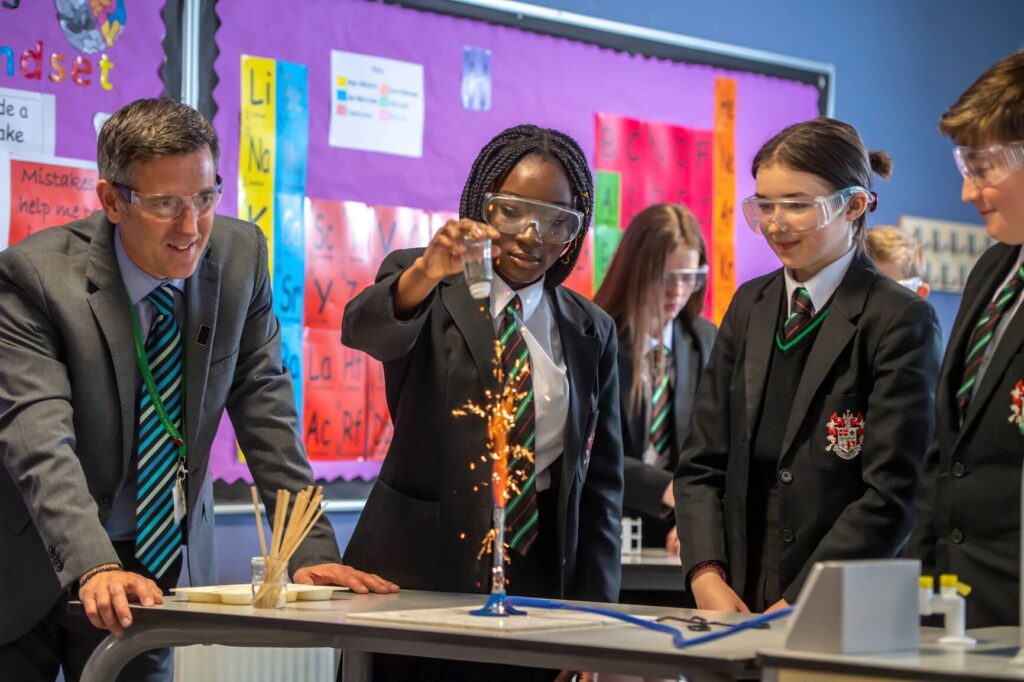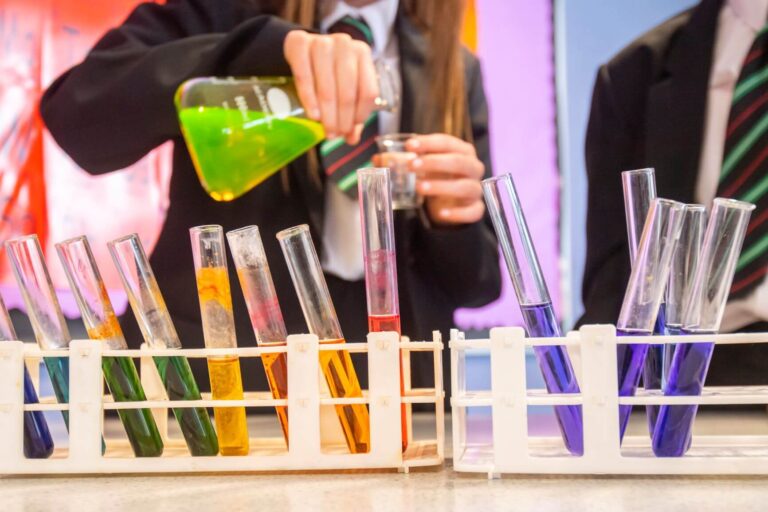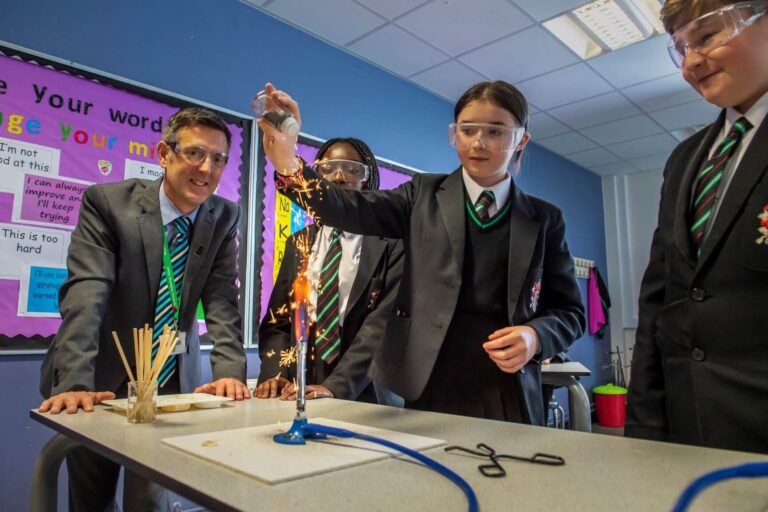
Science
Study topics from Biology, Chemistry and Physics and explore the big ideas of science.
Year 7
In year 7 science, students continue to build on their scientific knowledge and understanding from key stage 2. They study topics from Biology, Chemistry and Physics and explore the big ideas of science as they progress through the units. Throughout the year, students also begin to develop their scientific skills in practical planning, data collection and analysis and evaluation. This year is fundamental in forming a basis of skills and concepts that students can continue to build on in year 8 and further into GCSE study.
Students begin their study of Biology with cells, the building blocks of life, before moving on to organs and organ systems within the body, then specifically to study how the reproductive system in humans allows for the creation of new life. Throughout these topics there are distinctive opportunities to debate, discuss key ethical issues and develop skills in critically analysing scientific developments.
Chemistry teaching units initially focus on the big idea of atoms as the basis of everything and move into the behaviours of atoms through reactions and how to represent these using word and balanced symbol equations. Students will use first-hand experience of reactions to investigate chemical phenomenon and develop their use of conventions for chemical communication.
Physics encourages students to develop ideas about how the world works around us. Teaching begins with understanding the big idea of how forces act on objects before moving on to how waves behave and finally investigating the wonders of our solar system! There is an emphasis on learning the basics of calculation skills as well as practical investigative techniques.
Overall this year is to build a firm foundation of scientific skills both investigative and in communication. For example, describing, explaining, concluding and evaluating. These skills form the basis for the next 4 years of scientific study at Middleton Technology School.
Year 8
Year 8 continues to build on the foundations built in year 7 science. The scientific skills of enquiry continue to be honed through the application of the big ideas of science. Students will be encouraged to extend their understanding and begin to link topics and concepts together to explain natural phenomenon.
Biology in year 8 begins with studying the digestive system in more detail, drawing on the big ideas of cells and particles to extend understanding. This then leads on to exploring ecosystems and the bigger links in the world around us and finally into the concepts of variation within ecosystems and how variation is inherited.
Throughout the year in Chemistry topics students will continue to build on their understanding of particles and conventions for communicating about reactions in the topics of separation techniques, the periodic table and reactions of metals. These schemes of work also lead to developing greater competency in the scientific skills required to carry out practical investigations.
In Physics students continue to draw on the big ideas of science through the study of energy, electricity, magnetism and motion and pressure. Students will be encouraged to continue to use numerical and literacy skills to eloquently express their ideas in a scientific context.
Overall this year is an opportunity for students to extend their application of scientific knowledge and skills in new contexts and stimulate more curiosity about how the world around us works.
Year 9
The year 9 Science curriculum draws on the concepts and ideas learned in years 7 and 8. Each topic has an overarching question which pupils will be able to give an informed answer to, based on the knowledge accumulated throughout the unit. These questions are designed to provoke thought and discussion as well as foster an enthusiasm for the subject and how it can be used to explain the world around us.
The units themselves are mostly project based with each incorporating a mixture of: research, independent learning, practical work, presentation, debate and investigative skills to allow pupils to acquire the knowledge, as well as the scientific skills, they need to equip them for the rigours of key stage 4. As part of their learning in year 9, pupils will learn about: plastics, how they are made and the environmental impact of them; as well as how a team of designers might go about designing a race car and the reasons behind their thought processes and the implications of plant based diets. Additionally, pupils will examine forces with an angle of space exploration and design diet and health plans for different types of athlete.
Throughout year 9, topics taught in year 8 are constantly revisited to ensure that pupils retain the knowledge they have gained and that it is firmly embedded as they move into key stage 4. At the end of year 9, pupils will begin to cover GCSE content. Key units including: atomic structure and the periodic table, cells, energy and the particle model will lay the foundations for the next two years.

